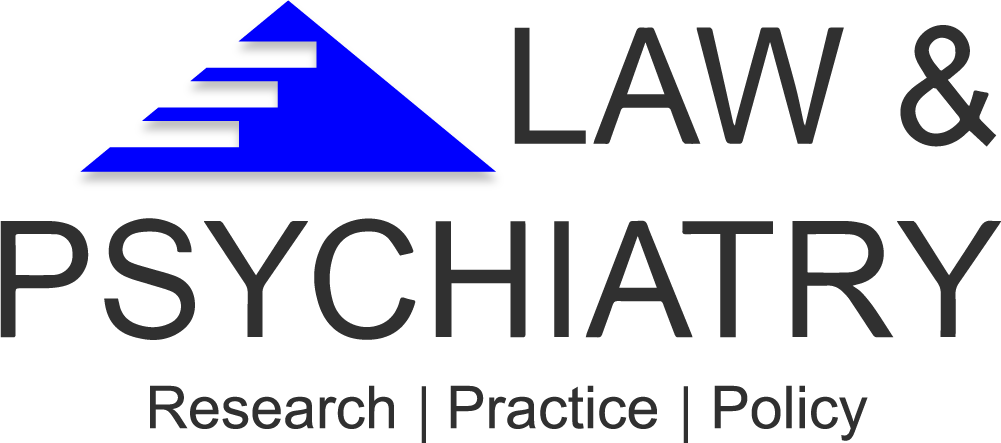About Us

The Law & Psychiatry Program is an interdisciplinary collaboration of UMass Chan Medical School faculty and staff devoted to clinical services, research, data-driven policy, training, and implementation support, at the interfaces of the behavioral sciences, psychiatry, psychology, and the law. The Law & Psychiatry Program was initiated in 1985 by Paul S. Appelbaum, MD, and eventually was directed by Thomas Grisso, PhD (2005-2014). Ira Packer, PhD, ABPP, and Gina Vincent, PhD, became the Program Co-Directors in 2014.
The Law & Psychiatry Program is currently Co-Directed by Natalie Anumba, PhD, DFP, ABPP, Professor of Psychiatry within the Department of Psychiatry, and Gina Vincent, PhD., Professor of Psychiatry within the Implementation Science and Practice Advances Research Center (iSPARC). Dr. Anumba works with the directors of the forensic psychology fellowship and clinical services components, and Dr. Vincent maintains responsibility for the research and implementation support components.
The Law & Psychiatry Program's primary training mission is to provide high-quality post-graduate preparation for service as forensic psychiatrists (directed by Paul Noroian, PhD and Margarita Abi Zeid Daou, MD) and forensic psychologists (directed by Ashley Murray, PhD) in the public sector on criminal and civil matters. Program faculty also have delivered, organized, and led trainings for community-based mental health professionals, public-sector forensic mental health professionals (both in Massachusetts and nationwide), mental health trainees, the judiciary, and the general public. The training program also includes a Legal Externship with a focus on mental health law and civil commitment proceedings for law students (directed by Danielle Rynczak, JD, PsyD). The Program's faculty provides clinical forensic services (directed by Andrea Dinsmore, PsyD) at the Worcester Recovery Center and Hospital (DMH) and Tewksbury Hospital, conducting approximately 1000 evaluations per year for Courts across the Commonwealth. Faculty also consults with private psychiatric hospitals, outpatient clinics, justice agencies, attorneys, and other mental health professionals.
The Law & Psychiatry Program’s primary research mission (directed by Gina Vincent, PhD) is to identify and be responsive to the needs of the criminal-legal & juvenile systems. The Program’s research faculty and staff use implementation science methods to study and advance evidence-based policies and practices across various legal decision points (from diversion to re-entry) nationally (implementation support/technical assistance). The Program’s research addresses a variety of questions relevant to legal settings, including screening and assessment strategies (e.g., risk assessment, behavioral health screening), the intersection of behavioral health and the legal system, methods of forensic assessment (e.g., competence to stand trial), reentry practices, and the advancement of equity in behavioral health and legal outcomes. The Program also hosts the MAYSI-2 Helpdesk to provide training and technical assistance to juvenile justice agencies adopting the MAYSI-2 as their mental health screen.
Major Accomplishments:
Produced and disseminated the first (and only) Guidebook on how to effectively implement risk/needs assessment and case planning in justice settings (Risk Assessment in Juvenile Justice: A Guidebook for Implementation). The Guidebook is based on findings from our federally-funded research in six states. Agencies that followed these key implementation steps gave youth significantly less severe sentences and shorter periods of probation, reduced incarceration, increased diversion of low-risk youth from the system, and increased referrals to services that would reduce risk without increasing the risk to public safety.
Collaborations with juvenile justice agencies in 28 states and 9 countries to implement risk assessment and the evidence-based risk-need-responsivity [RNR] approach in a manner that is effective, sustainable, and promotes racial equity.
Developed, normed, and nationally normed the Massachusetts Youth Screening Inventory-2 (MAYSI-2), the most widely used behavioral health screen in juvenile justice in the United States, to identify acute psychiatric symptoms and suicide risk among justice-involved youth.
Improved the quality and procedures for competence to stand trial evaluations by developing and disseminating standardized instruments for adults (MacArthur Competence Assessment Tool – Criminal Adjudication) and youth (Juveniles Adjudicative Competence Instrument), and Guides for states to develop their service delivery systems and statutes.
